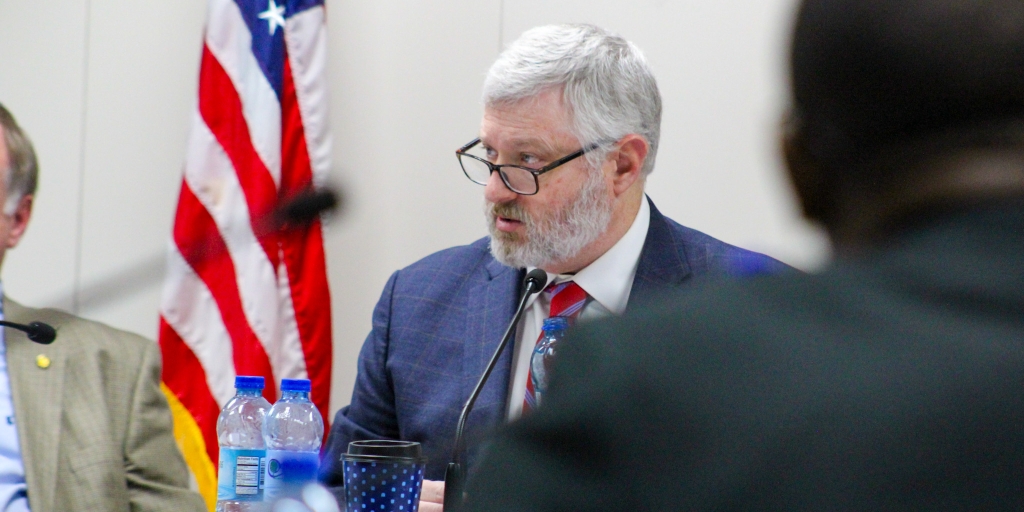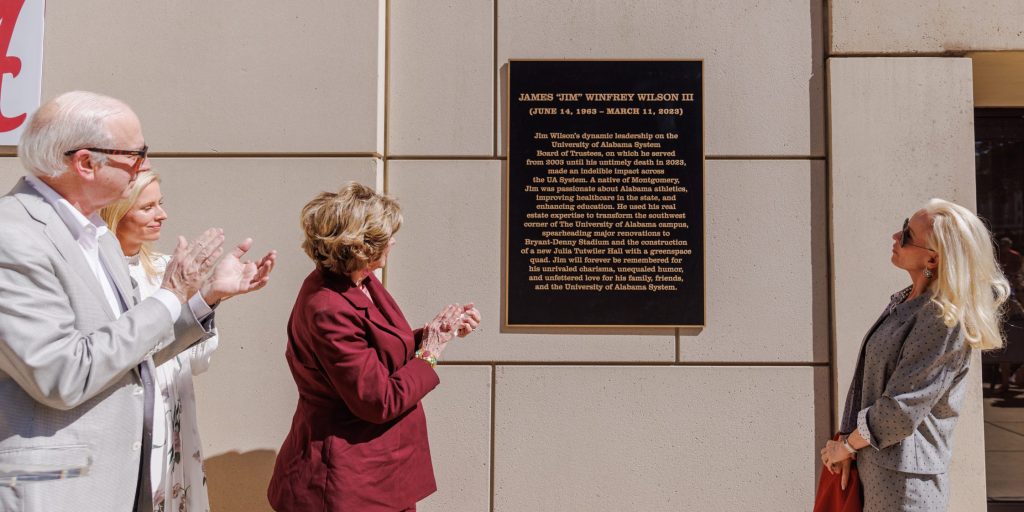The University of Alabama has been selected by the National Oceanic and Atmospheric Administration (NOAA) to host a new hydrology research-focused cooperative institute.
U.S. Sen. Richard Shelby (R-Tuscaloosa), vice chair of the Senate Committee on Appropriations, made the announcement Wednesday.
In a release, Alabama’s senior senator outlined the award’s significance.
“I am thrilled that the University of Alabama has received this competitive award to facilitate a cutting-edge Cooperative Institute focused on hydrology,” stated Shelby. “UA has the unique environment and expertise to lead the nation in high-level water research between 28 partners. Thanks to the Alabama Water Institute’s leadership in assembling a world-class team, the growing scientific expertise and collaborations in Alabama will continue to benefit the nation.”
The senator added, “Additionally, NOAA’s efforts to create this innovative institute will, in turn, protect communities and promote wise investments across the nation through better water models, forecasts, and predictions. This award is excellent news for Alabama and its findings will influence decisions made across the continent for years to come.”
According to Shelby’s Senate office, the research venture establishes the Cooperative Institute for Research to Operations in Hydrology (CIROH), which will be housed and administered by the Alabama Water Institute.
The institute will consist of a network of 28 academic institutions, nonprofit organizations, and government and industry partners. The institute’s goal will be to improve NOAA’s actionable water resource information for forecasts, watches, warnings and related products to protect life and property and strengthen the national economy.
The selection of UA to lead the national water effort includes an award of up to $360 million, which would be distributed over the course of five years, with the potential for renewal for another five years.
UA System chancellor Finis St. John recognized Shelby for his efforts in supporting the institution’s status as a leading research hub.
“The addition of the Cooperative Institute to the University of Alabama’s campus bolsters UA’s position at the epicenter of water research and operations,” said St. John. “The opportunity to earn this competitive grant and lead the nation in this transformative work providing exceptional educational opportunities for our students would not be possible without Senator Richard Shelby’s support to bring the National Water Center and U.S. Geological Survey partners to our campus.”
UA president Stuart R. Bell asserted that the award will bolster the contributions made by the university in the realm of hydrologic research.
“The research institutes were established on campus to support and expand upon the great work done by our faculty, staff, and students in addressing real challenges facing our society,” proclaimed Bell. “This award will elevate those contributions, bringing innovation to such a critical issue as water quality and availability while enriching the educational experience of our students. The expertise of the Alabama Water Institute is positioned well to answer our nation’s call to improve the lives and livelihood of Americans and our partner nations.”
Rick Spinrad, undersecretary of Commerce for Oceans and Atmosphere NOAA administrator, stated that the program will “train the next generation of scientists.”
“The new cooperative institute will work with NOAA to research and develop state-of-the-science water analysis, forecasts, and guidance, and the equitable delivery of decision-support services,” advised Spinrad. “This program will train the next generation of scientists focused on addressing water issues and emergencies on all time scales, helping NOAA build a Climate Ready Nation that is responsive and resilient in a changing world.”
Scott Rayder, Alabama Water Institute executive director, expressed excitement over leading the collective research efforts.
“I am proud to be spearheading this unprecedented Cooperative Institute, which will not only create a consortium of institutions that will leverage their individual prowess to address today’s most pressing water issues but also usher UA forward in its status as an emerging and leading water research institution.”
Dylan Smith is a staff writer for Yellowhammer News. You can follow him on Twitter @DylanSmithAL













